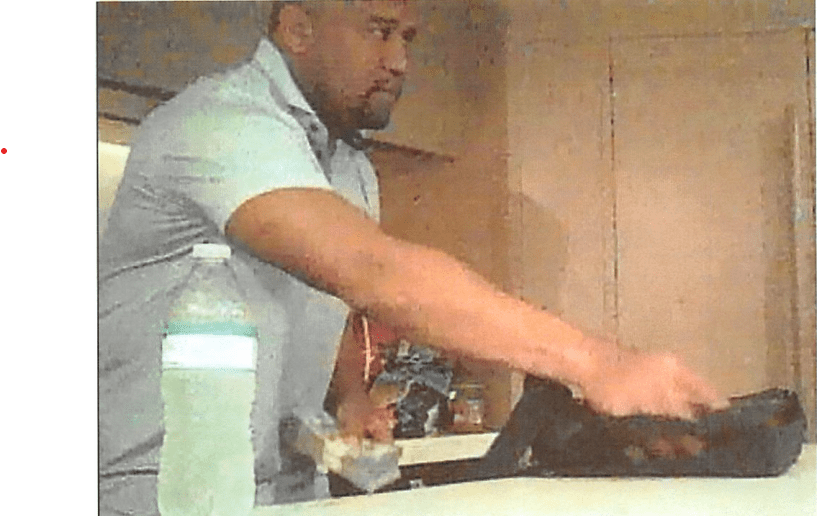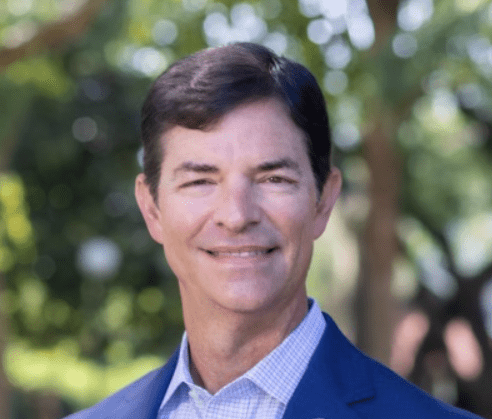
- Campaign finance report filed by Mayor Lumumba shows five $10,000 donations received around the time of FBI’s alleged bribery payment, but leaves gaping holes and more questions. Attorney General Fitch’s Office says an active investigation is underway.
The math on campaign finance reports filed by embattled Jackson Mayor Chokwe Antar Lumumba does not add up. The Mayor should have roughly $89,000 cash on hand based on reported contributions and expenditures between 2022-24. His report says he has only $28,000 (even).
Here’s the quick tally: Lumumba reported contributions exceeding expenditures by $70,979.10 in 2024. Both Lumumba’s 2022 and 2023 reports, filed delinquently with his 2024 report, showed contributions exceeding expenditures by approximately $18,251.
If you’re doing the calculations at home, that would mean more than $61,000 in unaccounted for expenditures in a three-year span. At least $14,500 might be in unreported disbursements federal prosecutors say the Mayor made to himself on April 5th and April 8th.
In an indictment filed by the Biden Department of Justice, prosecutors says Lumumba wrote the April checks out of his campaign account after depositing five $10,000 checks provided by the FBI in exchange for the Mayor agreeing to move up a deadline for a hotel project.
The 2024 report shows no disbursements between March 30th and April 25th.
More than Missing (Alleged) Disbursements
There are a number of other abnormalities recorded on the 2024 report, including the absence of identifying information — like names, addresses and dates of payment on certain entries. Another peculiarity presents in the use of round numbers, including a $23,000 payment with the recipient identified only as “canvassing.” No vendor. No address. No Date.
It’s rare that actual documented expenses come out so perfect, but it’s the norm on Lumumba’s report.
Politicians frequently hire an accounting firm to sign off on campaign finance reports. In this instance, Lumumba, himself, is listed as the preparer of the 2024 report. The filing will likely raise additional questions for federal prosecutors and perhaps for state and local officials, including those who have to decide if it is sufficient to qualify him for the ballot.
Report Does Show Receipt of Five $10,000 Checks Around Time of Alleged FBI Bribery Payment
So what of the five $10,000 campaign checks prosecutors say Lumumba received while aboard an FBI yacht off the coast of Miami on April 2nd of last year?
The 2024 campaign finance report filed by Lumumba at the time he submitted paperwork for re-election show receipt of five $10,000 payments dated between March 28th and April 1st. The dates recorded could be a reflection of the dates on the checks supplied.
The subject donations reported by Lumumba include:
- $10,000 from Downtown Cigar Company LLC, which is owned by Hinds County District Attorney Jody Owens (dated April 1st).
- $10,000 from Perinatal Services PLLC, a company owned by Owens and his wife, Michele Owens (dated April 1st).
- $10,000 from Owens’ relative and business partner Sherik Marve’ Smith (dated April 1st). Smith pled guilty last fall for his role in the alleged bribery scheme.
- $10,000 from Kevin J. May. Sources tell Magnolia Tribune that May is an investigator in Jody Owens’ District Attorney Office (dated April 1st).
- $10,000 Karry L. Young (dated March 28th).
The first four reported “donors” have clear ties to Lumumba’s alleged co-conspirator, Owens.
Young’s website says he owns a construction and development company with offices in Illinois and Mississippi. Magnolia Tribune reached out to Young to determine if he authorized the use of his company to issue the $10,000 check dated March 28th, his relationship with Lumumba or Owens, and whether the money to issue the check was funneled through Owens. At time of publication, no response had been received.
Federal prosecutors say they possess a recording of Lumumba and Owens on the FBI yacht discussing how five $10,000 checks were prepared:
- Owens: “We want to be very mindful of out-of-state money.”
- Lumumba: “Yeah.”
- Owens: “So what this team did was give us the money, being me, and we just filtered it through several accounts in a way we comfortable doing.”
- Lumumba: “Yeah.”
- Owens: “So we did five $10,000 checks to make it very simple…”
According to prosecutors, Lumumba took an envelope containing the checks and then made a call at the FBI operative’s request to a Jackson city employee to move the deadline for the hotel proposal up in order to prevent other submissions.



Mayor Lumumba has declined to comment on the campaign finance reports or to confirm that the five $10,000 checks are the same ones referenced in the recording. He has also denied the charges brought against him, pleading not guilty at the time of his indictment.
What Could This Mean for Prosecution & Election?
- FEDERAL PROSECUTION
Assuming federal prosecutors can prove that Mayor Lumumba wrote himself the checks they allege out of the campaign account, the failure to report those disbursements could become evidence in support of the conspiracy, honest service fraud, and money laundering counts alleged. There are still additional elements prosecutors would need to prove.
Presumably, federal prosecutors will also be examining how the rest of the campaign finance reports’ information lines up with their own forensic accounting of Lumumba’s campaign and personal accounts.
- POTENTIAL STATE LAW QUESTIONS
In 2017, Mississippi amended its campaign finance law to prevent the personal use of campaign funds by politicians. Miss. Code Ann. § 23-15-821 makes the conversion of campaign funds a misdemeanor that carries a penalty equal to the amount converted, plus additional penalties.
Mississippi campaign finance law also makes it a crime to willfully violate reporting requirements, such that if a report is found to be in purposeful non-compliance, an offending party is subject to up to $3,000 in fines and up to six months in prison. Mississippi law clearly requires identification of anyone who donates $200 or more and the date of any such donation. Likewise, Mississippi law requires the identification of any recipient of $200 or more and the date of any such donation.
Then there’s the question of whether stiffer criminal charges, like fraud, could be applied to a candidate if proof of purposeful omissions intended for personal financial gain exists.
- WHO ENFORCES MISSISSIPPI CAMPAIGN FINANCE LAW?
One prevailing point in recent months (and years) has been a lack of clarity over who has power to enforce Mississippi’s election laws. This author/recovering lawyer’s read of what is a moderately jumbled code is that the answer is complicated — at times my understanding of statute has been that state office holders have more power than they believe they have to act.
But multiple lawmakers told Magnolia Tribune that the ultimate responsibility to investigate any campaign finance violations falls either on Attorney General Lynn Fitch or Hinds County District Attorney Jody Owens.
Owens, again, is an alleged co-conspirator in the bribery case. Safe to say he’s conflicted out of investigating Lumumba, though he has been allowed to maintain his office and law license while awaiting trial.
Fitch’s Office told Magnolia Tribune that an active investigation is underway and declined to offer comment when specific abnormalities in the campaign finance reports were raised.
Michelle Williams, Fitch’s Chief of Staff, did provide a statement to Magnolia Tribune addressing the claim that responsibility for enforcement rested with her office:
“The current system for assessing penalties for failing to timely file reports is broken. It requires work by three agencies – possibly four for a municipal election – and the Attorney General’s Office is in every instance the last step, requiring notification by another agency to trigger our part. In addition, the misdemeanor prosecution and $500 in civil penalties are too light to deter bad behavior. And the many grace periods allowed for curing a delinquent report can push action against a tardy candidate until after the election. General Fitch is hopeful that this year the Legislature will take up the campaign finance reform package she has put forward for the past two years to close the gaping holes in the system, streamline enforcement of its provisions, and improve transparency.”
Secretary of State Michael Watson, who at times has been critical of Fitch’s efforts to enforce, also has a package of proposed election reforms that include requiring online reporting for all offices — including municipal elections — with the Secretary of State.
Williams did tell Magnolia Tribune that Mayor Lumumba’s opponents could file a complaint with their office or the Ethics Commission if they believed the campaign finance reports violate Mississippi law.
There’s also the potential Lumumba’s opponents could challenge his certification as a candidate by filing civil suit. Presumably, the Supreme Court would appoint a special master to hear such a challenge.










